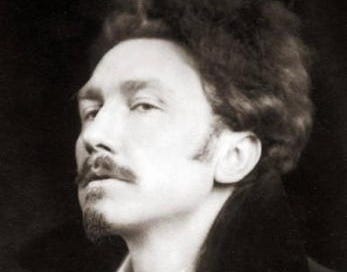Ezra Pound: Poet and Reformer
A New History of the Life, Work, Persecution and Imprisonment of a maligned giant of literature and life-long campaigner for economic justice
Estimated reading time: 30 minutes
“Artists are the antennae of the race.” — E. P.
As Mark Ford has observed, “Pound had become the vibrant center of an artistic circle that changed the course of poetry...as decisively as any in literary history.” In addition to his sponsorship of “modernism” in the Republic of Letters, as personified by T.S. Eliot (not to be confused with the liberal movement of that name within Christian theology), Pound’s writing invariably highlighted “institutional malfeasance” which, for correction, requires “the intervention of the heroic, dissenting individual.”
From these foundations Pound proceeded to become one of the two most famous campaigners contra the Money Power in the 20th century (the other being Fr. Charles Coughlin of Royal Oak, Michigan), for which he is endlessly damned, second-guessed and pitied by his high-brow, literary fellow-travelers and biographers.
Pound’s approach to literature was revolutionary and quintessentially American. He was born in the wilds of the Idaho territory on October 30, 1885 and graduated from Hamilton College in New York in 1905. In 1908 he set sail for Europe, spending several months in Italy and settling in London, where he was befriended by Irish poet W. B. Yeats. Between 1908 and 1911 Pound composed six collections of verse, most of it dominated by a passion for Provençal and early Troubadour poetry. The range of Pound’s contacts cast him in the role of publishing midwife, editor, and advocate of some of the most distinguished names in 20th century literature. He enhanced Yeats’s mature style and discovered and promoted James Joyce and Eliot, whose masterpiece, The Wasteland, was shaped by Pound’s annotations.
Ezra knew nine languages and counseled a working knowledge non-English : “One NEEDS, damn well needs, to know the few hundred words in the few really good poems that any language has in it.”
His revolution consisted in part of an intellectual who was anti-academic. Pound’s definition of a professor: “A man who is paid to talk for an hour.” He cut through the procedural hurdles in college and university course-work with the elan of a Samurai swordsman, and advocated auto-didacticism.
In his ABC of Reading he wrote, “It doesn’t, in our contemporary world, so much matter where you begin the examination of a subject, so long as you keep on till you get round again to your starting point. As it were, you start on a sphere, or a cube: you must keep on till you have seen it from all sides...You have a duty to posterity to get it right.”
Keep reading with a 7-day free trial
Subscribe to Michael Hoffman's Revelation of the Method to keep reading this post and get 7 days of free access to the full post archives.




